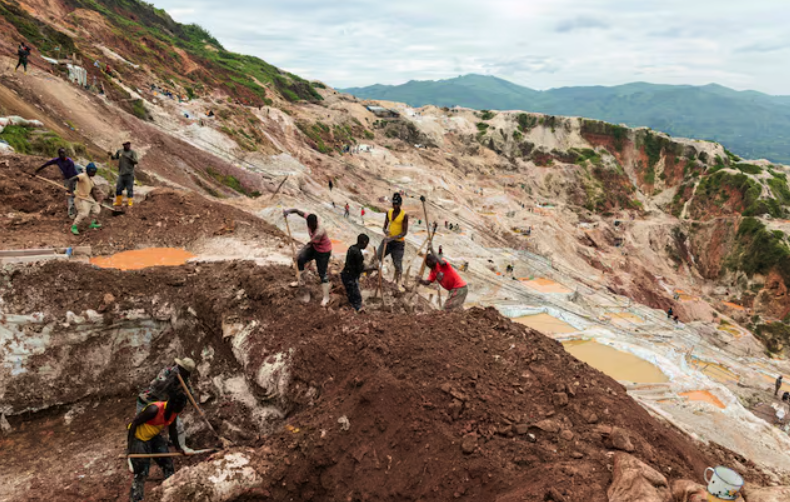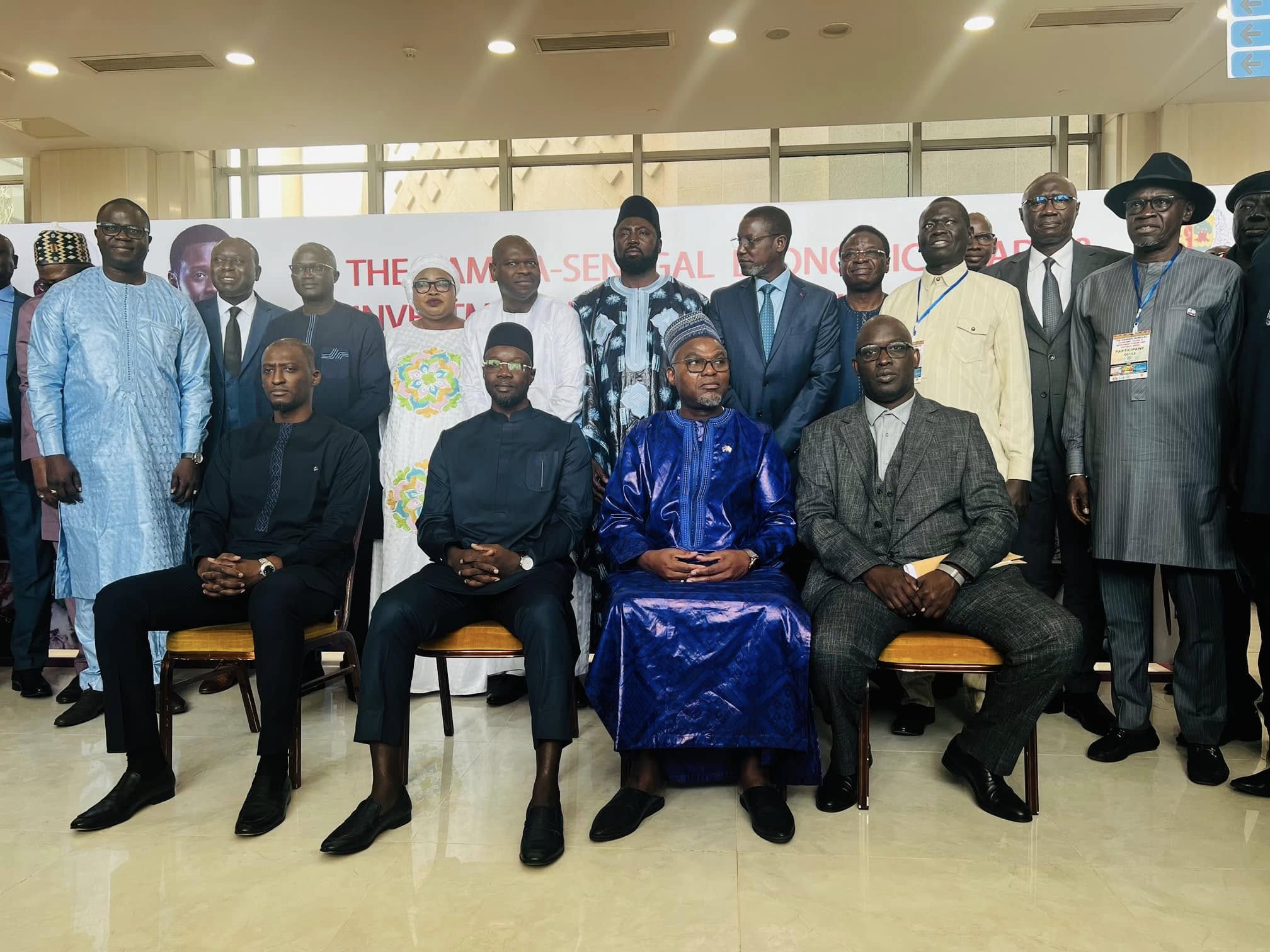Gambiaj.com – (BANJUL, The Gambia) – The Senegalese-Gambia Economic, Commercial, and Investment Forum’s second edition in Banjul spotlighted critical issues in the bilateral trade and investment relationship. Leading voices from Senegal’s private sector outlined their vision for a mutually beneficial partnership that addresses long-standing challenges and taps into shared opportunities.
Ousmane Sy Ndiaye, Executive Director of Senegal’s main traders’ association, UNACOIS Diappo, emphasized the persistent hurdles in the free movement of people and goods across the Senegambian corridor. “The movement within the West African region remains a real headache,” Ndiaye stated, urging the administrations of both countries to simplify trade processes and improve security for smoother operations.
He highlighted The Gambia’s consumer market potential, noting Senegal’s capacity to support its neighbor with essential goods such as food supplies and construction inputs. Beyond these sectors, Ndiaye called for enhanced collaboration in cultural and creative industries, as well as in banking and insurance services, to diversify economic cooperation.
Harmonizing Policy and Infrastructure Development
Ndiaye also proposed harmonizing tax and legal frameworks to ease cross-border commerce. The distinct administrative systems—Senegal’s French-influenced model and The Gambia’s Anglo-Saxon system—have posed barriers to seamless transactions. He advocated for the establishment of unified dispute resolution mechanisms, with the Dakar Chamber of Commerce’s arbitration and mediation center potentially playing a pivotal role.
Prime Minister Ousmane Sonko reinforced these sentiments, underscoring the need for a “win-win partnership” between the two nations. He urged investments in critical sectors like energy, infrastructure, transport, and tourism, all of which are pivotal to economic resilience in the region.
Economic Interdependence Amid Challenges
The movement of goods and services between Senegal and The Gambia illustrates the economic interdependence of the two countries. The Ziguinchor-Gambia taxi route alone reflects substantial daily exchanges between the populations. Despite issues like corruption and bureaucratic inefficiencies, customs revenues in southern Senegal have recently risen. However, these figures exclude informal trade and smuggling, underscoring the need for formalized systems to regulate cross-border exchanges.
Military and political cooperation, particularly Senegal’s role in The Gambia’s political transition, has positively influenced economic and social ties. However, Ousmane Ndiaye pointed to Senegalese residents in The Gambia facing difficulties in healthcare access, trade, and even legal disputes. He stressed that safety and environmental concerns, such as unregulated logging, must be prioritized to ensure sustainable development.
Diplomatic Progress and Pan-African Vision
Professor Saliou Ndiaye, Senegal’s former ambassador to The Gambia, acknowledged recent advancements in bilateral relations, including the establishment of a common executive secretariat. Represented equally by both countries, this body is seen as a cornerstone for driving joint economic development.
The professor also highlighted the critical need for a unified identification system to ease the movement of people. “The challenges are multiple, but one of the main ones remains the free movement of people and services,” he said, announcing the creation of an observatory to address these issues.
Professor Ndiaye commended Senegalese President Bassirou Diomaye Diakhar Faye’s neighborhood diplomacy efforts, which have strengthened ties with neighboring countries, including The Gambia. His first official visits, focused on regional partnerships, underscore a Pan-African vision of collective progress.
The forum revealed that the private sector is eager for actionable changes, particularly in trade facilitation, security, and harmonized policies. Both nations’ administrations were called upon to address these gaps to fully capitalize on the economic opportunities available.
As Senegal and Gambia deepen their partnership, the private sector’s calls for a more integrated, efficient, and secure economic framework resonate as a crucial roadmap for achieving sustainable development and regional integration.










